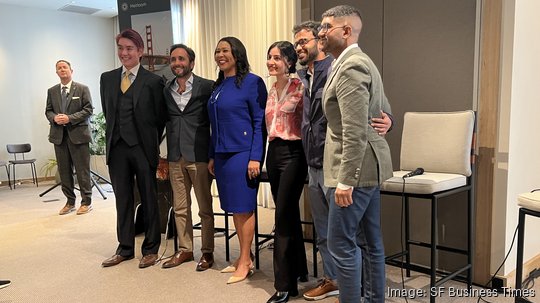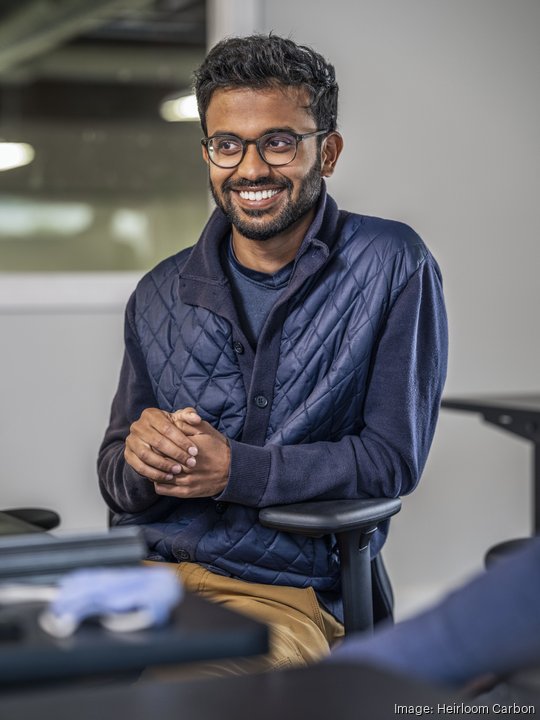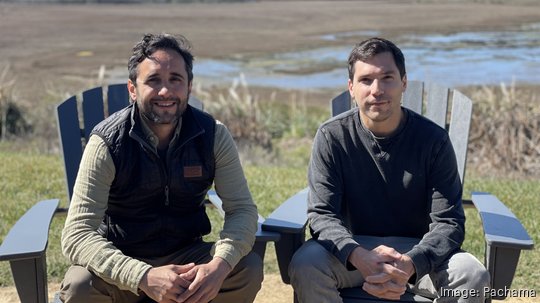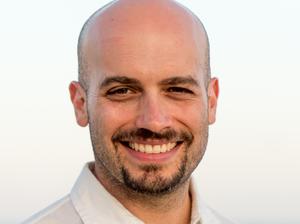
San Francisco is leading the country and the world on developing innovative and equitable solutions to mitigating climate change, Mayor London Breed said in her opening remarks at an SF Climate Week event on Wednesday.
The city is "leading the country, and leading the world, on climate technology," Breed said, "and what I am also looking forward to, in creating this whole new job sector, is how do we make the connection between the residents of Bayview Hunters Point and these new climate technology opportunities that will exist?"
Breed made the comments during an event featuring three local founders of climate tech startups that are developing various products and services related to decarbonization.
Heirloom Carbon Technologies CEO Shashank Samala, Rubi Laboratories CEO Neeka Mashouf and Pachama CEO Diego Saez-Gil echoed the mayor's call for the equitable implementation of climate tech strategies so that communities most impacted by climate change are prioritized in conversations and in practice.

The founders picked San Francisco and the broader Bay Area as a home base for their respective companies both for access to the deep pool of tech talent but also for the region's culture of environmental awareness and appreciation. But launching startups in San Francisco that require research, development and manufacturing facilities remains challenging, they said.
Office vacancy rates climbed to nearly 30% in San Francisco during the first three months of the year — a figure that's expected to increase in the coming months — but for laboratory space typically used by biotech and climate tech companies, the vacancy rate is only 5%, Breed said.
"The big tactical challenge for us has been lab space and office space," Mashouf said. "San Francisco's downtown has been really focused on a specific sector … more software leaning. And I think there's a massive opportunity to be able to attract more companies like ours if we incentivize development of some of that office space to be equipped for more hard tech companies, climate tech companies like ours."
Many of their employees commute from San Francisco to Rubi Laboratories' facility in the East Bay, so an improved Bay Area-wide public transit system would also be beneficial, Mashouf said.
Rubi Laboratories uses carbon capture and biotechnology to create sustainably produced textiles. Mashouf, and her twin sister, was selected as one of Bay Area Inno's Under 25 founders to watch last year.

Samala called for a "sandbox for innovation" in San Francisco that would span across real estate and community engagement.
"Physical spaces is a key component … Software companies need desk space, monitors. Climate technology companies have a diversity of needs around lab production, manufacturing, prototyping, warehouses. There is some of that in San Francisco, but not a lot," Samala said. Then, "as we test these technologies in the field, as we deploy these out on the field, to actually ensure we create impact, we need to get help from the cities to show communities the impact of our work and ensure that we get community buy-in."
Heirloom uses limestone to capture carbon from the atmosphere and then sequesters it in concrete or in underground storage.
The panel also agreed that an equitable deployment of climate tech also extends to hiring practices.
"Our team is made up of mostly women and people of color coming from communities that are most impacted by climate change, and that's something that we continue to prioritize as we're hiring and building our teams," Mashouf said. "One of our senior engineers grew up in an indigenous community in Chile and really saw firsthand changes to that community because of climate. We have another teammate from Ghana … it's one of the regions that's most impacted by textile waste."

Companies working on climate technology should also learn from the mistakes of the so-called Cleantech 1.0 era of the mid-2000s and examine the potential unintended consequences of their strategies, Saez-Gil said.
"Climate justice and climate reparations are inherent to what we do. What we do is transfer money from the largest corporations in the world to communities that can protect and restore their ecosystems for their own benefit. One of the great things about reforestation and conservation is that it's not just about carbon. It's also about water. It's about food. It's about medicine. It's about an income for local communities. But of course, things can go wrong, and they did go wrong in the first generation of carbon credits," Saez-Gil said.
Over the past decade, carbon offset marketplaces have been criticized for becoming a mechanism of greenwashing corporate practices while failing to force meaningful reductions in emissions.
"We actually brought an expert to facilitate a workshop about responsible tech and unintended consequences," Saez-Gil said. "He made us imagine how it could go wrong, and how our technology could be abused if it works at scale … It is incredibly important for climate tech companies to be very intentional about their designs. Think of unintended consequences. Even the best intentioned technologies tend to have unintended consequences."
Pachama utilizes satellite data, lidar and artificial intelligence to measure and track the progress of projects designed to reduce emissions and generate carbon offset credits through efforts like reforestation.
In October, President Joe Biden signed the Inflation Reduction Act, which earmarked around $369 billion for incentives and spending on a wide range of climate change mitigation strategies.








